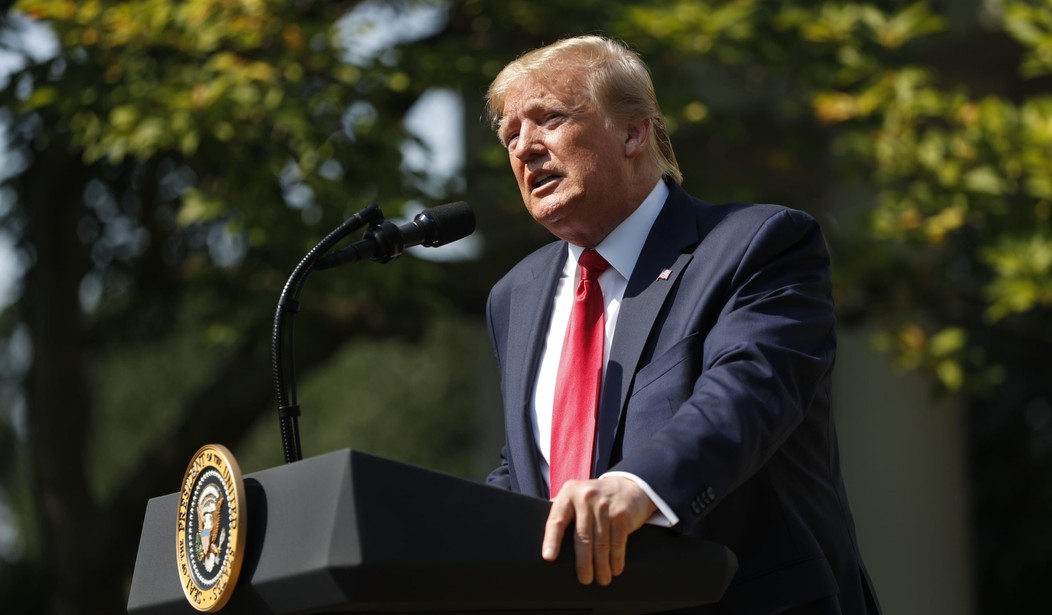Anne Applebaum tells her readers in the Washington Post: “Non-Americans, be warned — there will be no return to normal after Trump.”
Across Europe, and indeed around the world, America’s allies have developed a bunker mentality. They are waiting, hands over their ears, for the assault to end, for peace and quiet to return, for commerce and diplomacy to resume as normal. In a year and a half, or 5½ years in the worst-case scenario, President Trump will go back to his vulgar tower …
Or will it?
We have just had an important two-night debate, during which we heard some of America’s most prominent journalists put questions to potential presidents. Most of the analyses describe who won and who lost, who struck blows and who parried them. But if you were listening outside the United States, as I was, something else was far more arresting: the near-total absence of the rest of the world. There was no Europe, no China, no Venezuela….
The United States is also a country that is returning to an older political tradition. Until the attack on Pearl Harbor, isolationism was an important, even dominant strand in U.S. politics.
Applebaum is probably wrong in predicting a reversion to the past. Countries are not returning to isolation, rather they are re-inventing globalization into one that resembles the way modern computers operate with protected memory spaces that nevertheless communicate over defined interfaces. “Essential to any multitasking system is to safely and effectively share access to system resources. Access to memory must be strictly managed to ensure that no process can inadvertently or deliberately read or write to memory locations outside the process’s address space. This is done for the purpose of general system stability and data integrity, as well as data security.”
If the “Russian collusion” episode — now being reprised in addition to Chinese bribery or Saudi influence — taught anything, it’s that countries need walls as well as bridges to maintain integrity. Otherwise, they will overwrite each other’s political memory spaces with dire results. The smartphone in your pocket probably has a number of apps, none of which would work if they could overwrite each other’s data at will. Neither could nations under globalization in its old form.
What no one wants to remember is that Russian collusion, if it happened at all, happened under Obama.
Where Applebaum is correct is predicting that things will never go back to normal. They can’t because it was unsustainable. They can’t because it was broken. The rush to 5G, for example, should be challenged unless we want our refrigerators ruled by China. Britain should be allowed to escape from the European Union. Big Tech must find that its consumer data hoovering days are at an end.
These are just some normals whose ending should be unlamented.
In reality, the good old days, when ISIS ruled the Middle East, Russia could invade the Ukraine, China steal the OPM data and the South China Sea and kill the entire CIA network in the Middle Kingdom that was never that good. Neither Trump nor Brexit nor the Democratic Party left-wing sprang out of thin air. They sprouted from a crisis.
The world won’t go back to the days before December 7, 1941, but neither will they return to the halcyon days before November 2016. Trump does not represent the future but he does symbolize the end of the past.
Follow Wretchard on Twitter
Tipjar at wretchard.com
Support the Belmont Club by purchasing from Amazon through the links below.
Books:
The March of Folly: From Troy to Vietnam, by Barbara W. Tuchman. In this book, the author of the WWI masterpiece, The Guns of August, grapples with the pervasive presence, through the ages, of failure, mismanagement, and delusion in government.
Win Bigly: Persuasion in a World Where Facts Don’t Matter, by Scott Adams. From the creator of Dilbert, an unflinching look at the strategies Donald Trump used to persuade voters to elect the most unconventional candidate in the history of the presidency, and how to succeed against long odds.
We Want to Negotiate: The Secret World of Kidnapping, Hostages and Ransom, by Joel Simon. From someone who has worked on dozens of kidnapping cases, this book is an exploration of the ethical, legal, and strategic considerations of a bedeviling question: Should governments pay ransom to terrorists?
Intuitive Eating, by Evelyn Tribole. The go-to book for those who need to rebuild a healthy body image and make peace with food.
For a list of books most frequently purchased by readers, visit my homepage.
Did you know that you can purchase some of these books and pamphlets by Richard Fernandez and share them with your friends? They will receive a link in their email and it will automatically give them access to a Kindle reader on their smartphone, computer or even as a web-readable document.
The War of the Words, Understanding the crisis of the early 21st century in terms of information corruption in the financial, security and political spheres
Rebranding Christianity, or why the truth shall make you free
The Three Conjectures, reflections on terrorism and the nuclear age
Storming the Castle, why government should get small
No Way In at Amazon Kindle. Fiction. A flight into peril, flashbacks to underground action.
Storm Over the South China Sea, how China is restarting history in the Pacific.










Join the conversation as a VIP Member